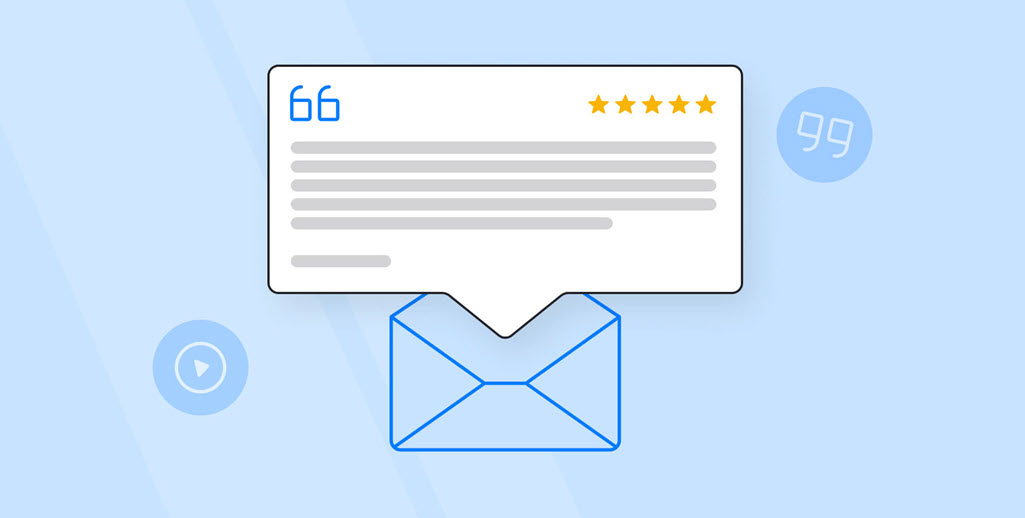Although customer testimonials are highly effective, it's arguable that they are not utilized enough in email marketing. The truth is, most businesses don't know how to use testimonials in email marketing.
But what would you say if we told you that it's easier than you'd think? It's well established that testimonials from real customers provide social proof, establish trust, and credibility to the millions of people who search online for local goods and services.
When these testimonials are from customers who have already tried and purchased your products or services, and are included in all your sales funnels, it becomes highly impactful. In fact, a potential customer is 93 percent more likely to trust an unbiased testimonial than a company that goes out of their way to promote their own products or services.
So - if you're looking to learn how to use customer testimonials in your email marketing programs, this article will provide a clear roadmap to follow.
Let's get started.
Related: Using Customer Reviews in Marketing
Why Should You Use Customer Testimonials in Email Marketing?
Word-of-mouth advertising is by far the most cost-effective sales growth strategy for any industry. For decades, retail giants Price Club and Costco battled each other for market supremacy without launching a single television ad. They both employed the 'take care of our customers, and our customers will tell 10 friends' strategy, and it worked.
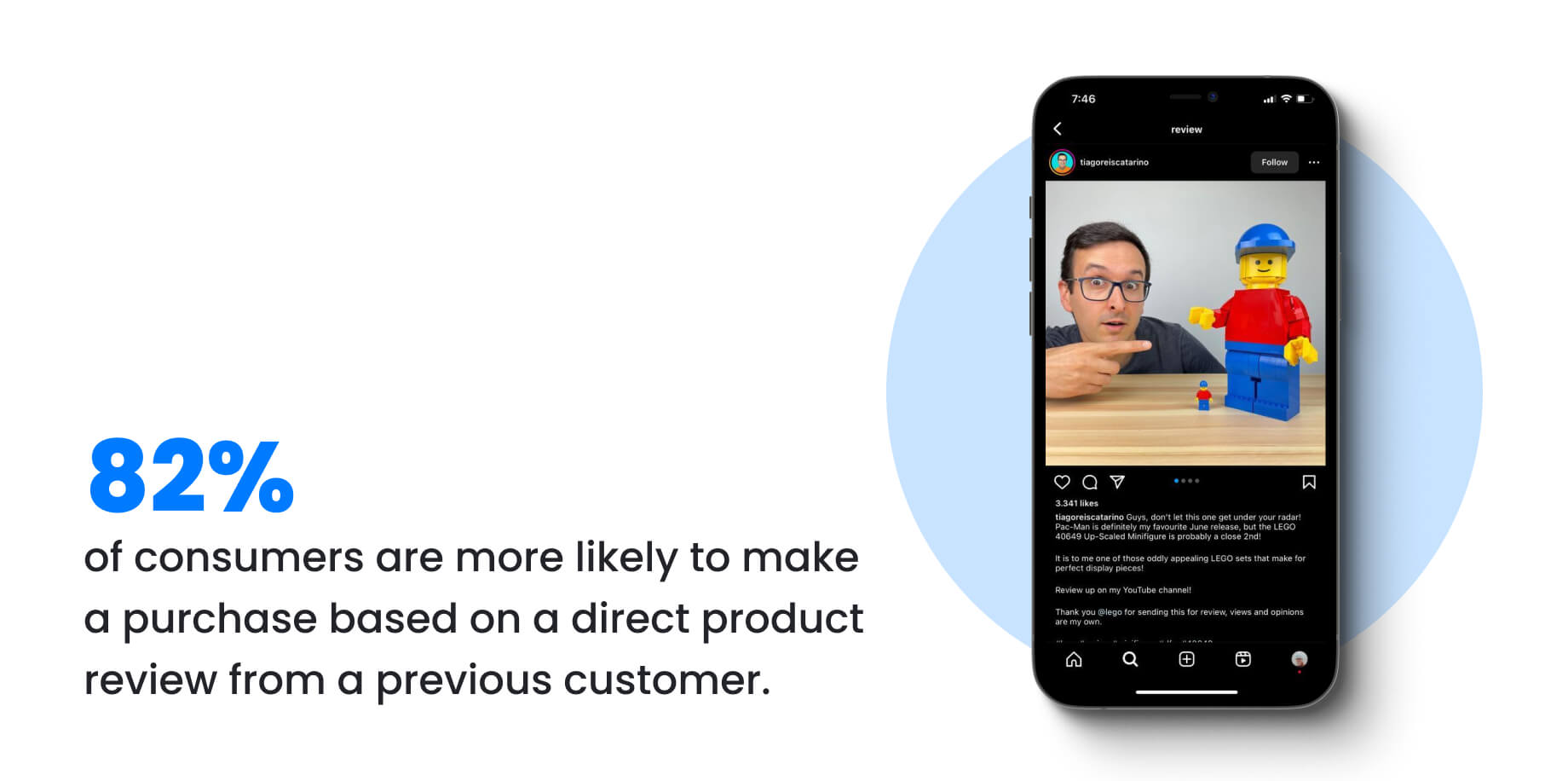
This same concept is amplified in today's digital age. Reviews from past customers who have purchased your product or used your service can be very effective in persuading potential customers to choose you.
This can be due to several factors.
Reason #1: Easier to Connect
The leading benefit of using direct testimonials is the connection with future customers. This is the fundamental concept of social proof, where people in an unfamiliar situation look for guidance from others and follow their lead.
If a customer experiences expectations of someone who shares the same need or circumstances as the future customer, it's likely that they will be satisfied as well. As such, the connection between like-minded consumers becomes stronger, which leads to increased sales conversions.
Reason #2: Takes Advantage of the Human Element
If there is an area that all brands attempt to achieve, it's creating a human element associated with their company. Testimonials from previous customers accomplish this mission for any type of business.
Using real stories and feedback from customers who have tried and enjoyed your product or service can strongly influence potential customers.
Reason #3: Established Trust
One way to build trust in your emails is by featuring testimonials from satisfied customers. When a company praises its own products, it's clear that they have a vested interest. On the other hand, a happy customer who shares their positive experience has no ulterior motive for encouraging others to buy the product.
That's why many people prefer to check reviews before buying something, as they feel that they're more reliable. Testimonials also have a great impact on sales.
Reason #4: Competitive Advantage
Customer testimonials can make a difference for businesses trying to stand out from their competitors. This is especially the case if the testimonials are from customers who have tried similar products and found that yours was the most effective. Testimonials like these can persuade hesitant consumers to buy your product.
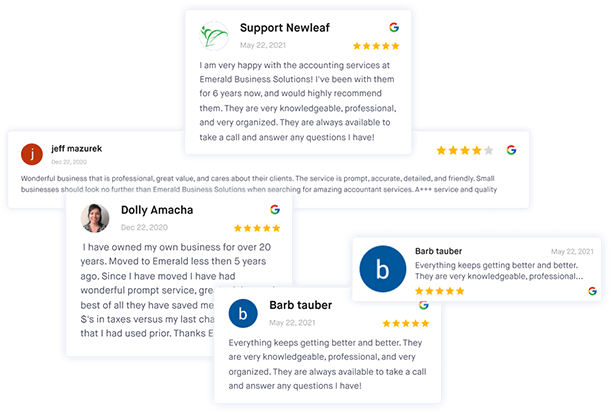
Showcase your online reputation
Use ReviewsOnMyWebsite's review widget to display your top reviews on your site.
5 Ways to Leverage Testimonials in Emails for Your Campaigns
The importance of customer testimonials in boosting sales is unquestionable. To make use of testimonials in your email marketing plan, here are five effective ways to incorporate them into your emails.
1. Product Reviews
82% of consumers are more likely to make a purchase based on a direct product review from a previous customer. To help potential buyers, it's a good idea to use customer reviews in your emails. However, it's best to choose shorter reviews that get to the point. Concise reviews are more effective.
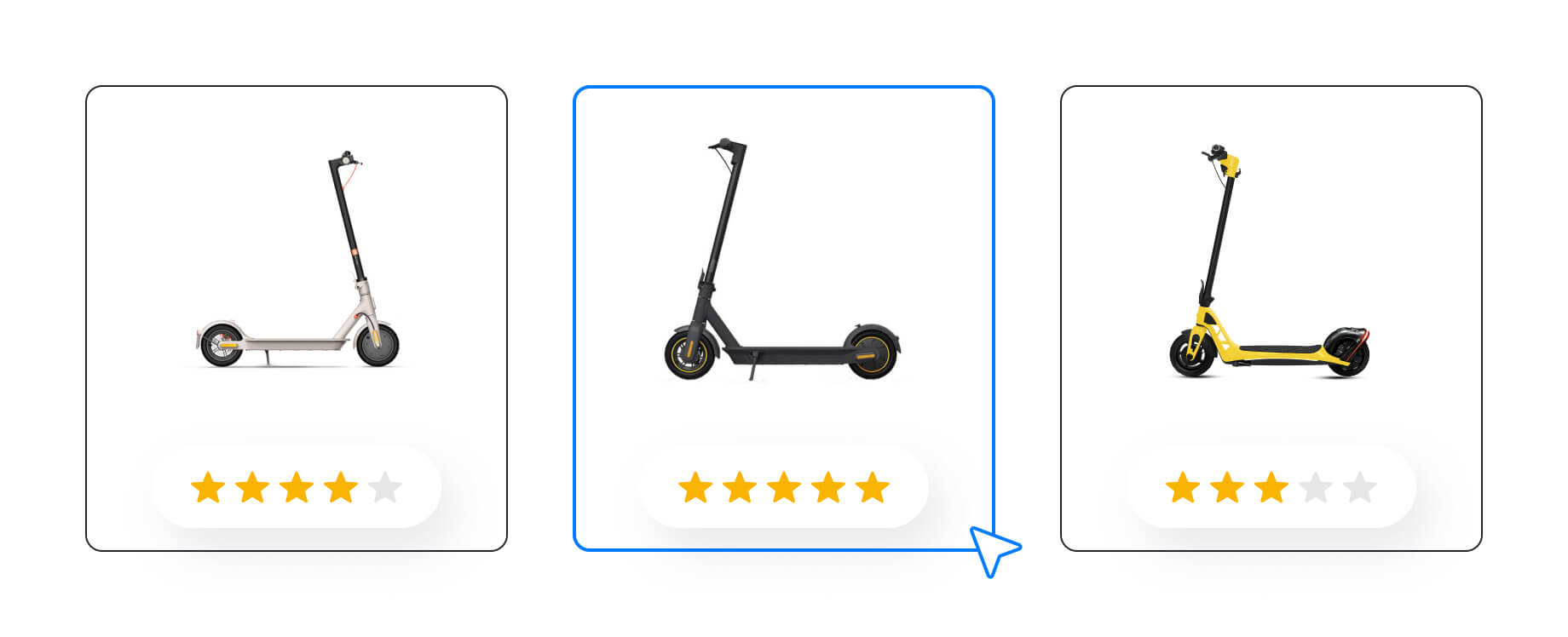
To make sure your subscribers read your emails, keep them short and easy to read. Adding brief reviews can convince them to buy your product or use your service.
To share a lengthy review with your email subscribers, provide a brief excerpt and a link to the complete review. This way, they can access the full review at their leisure.
2. Video Testimonials
Adding a video testimonial from a satisfied customer can be a powerful marketing tool for your service or product. It brings a human touch to your emails and adds emotional depth. Using a video to showcase how real people have benefited from your product in their lives is an effective way to visually demonstrate it to any hesitant consumer. These videos are an authentic way to promote your brand and build trust with your subscribers.
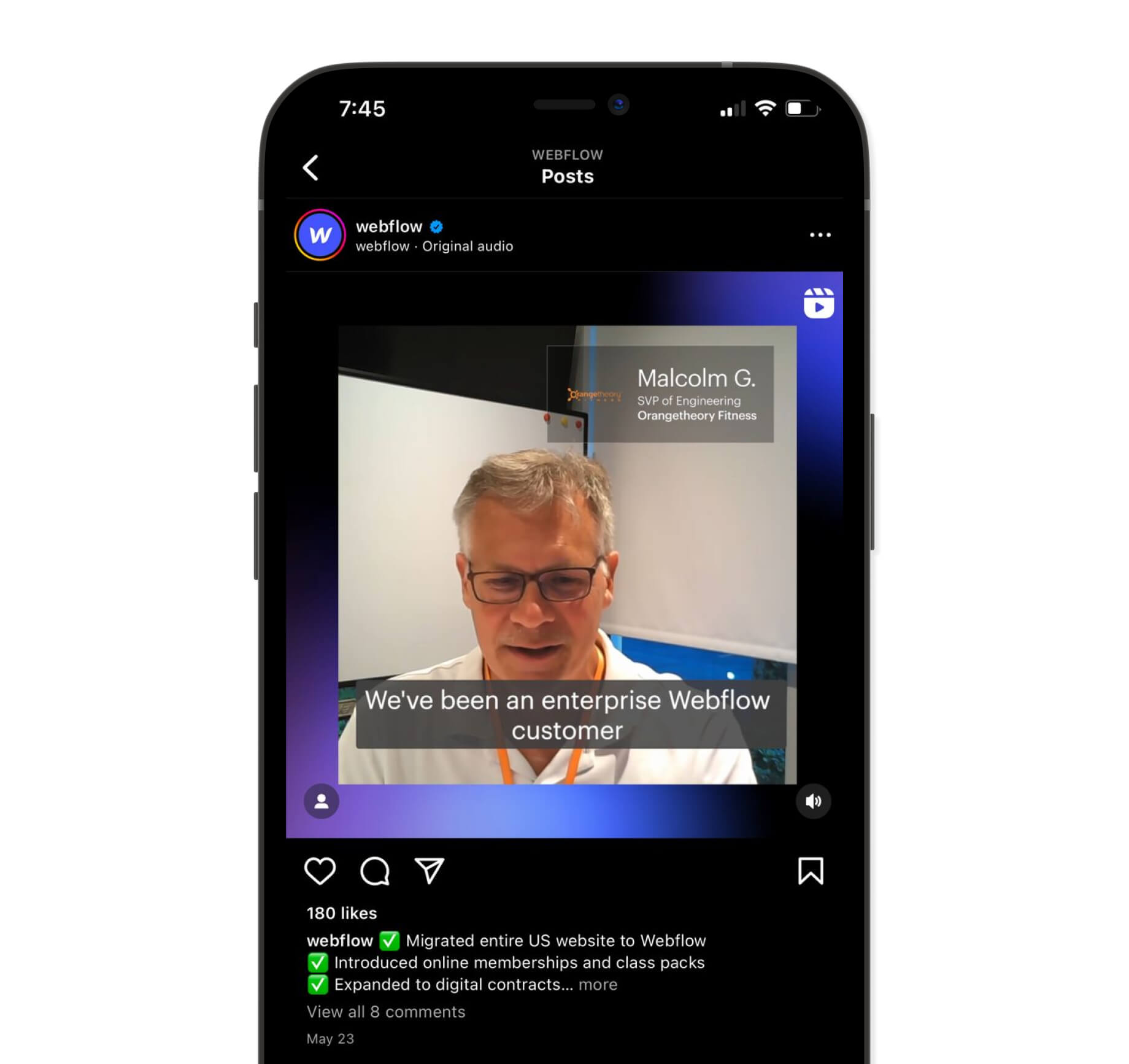
3. Social Media Posts
It is recommended to incorporate reviews from social media in addition to those on your website or in surveys. Social media is a great source for genuine product reviews.
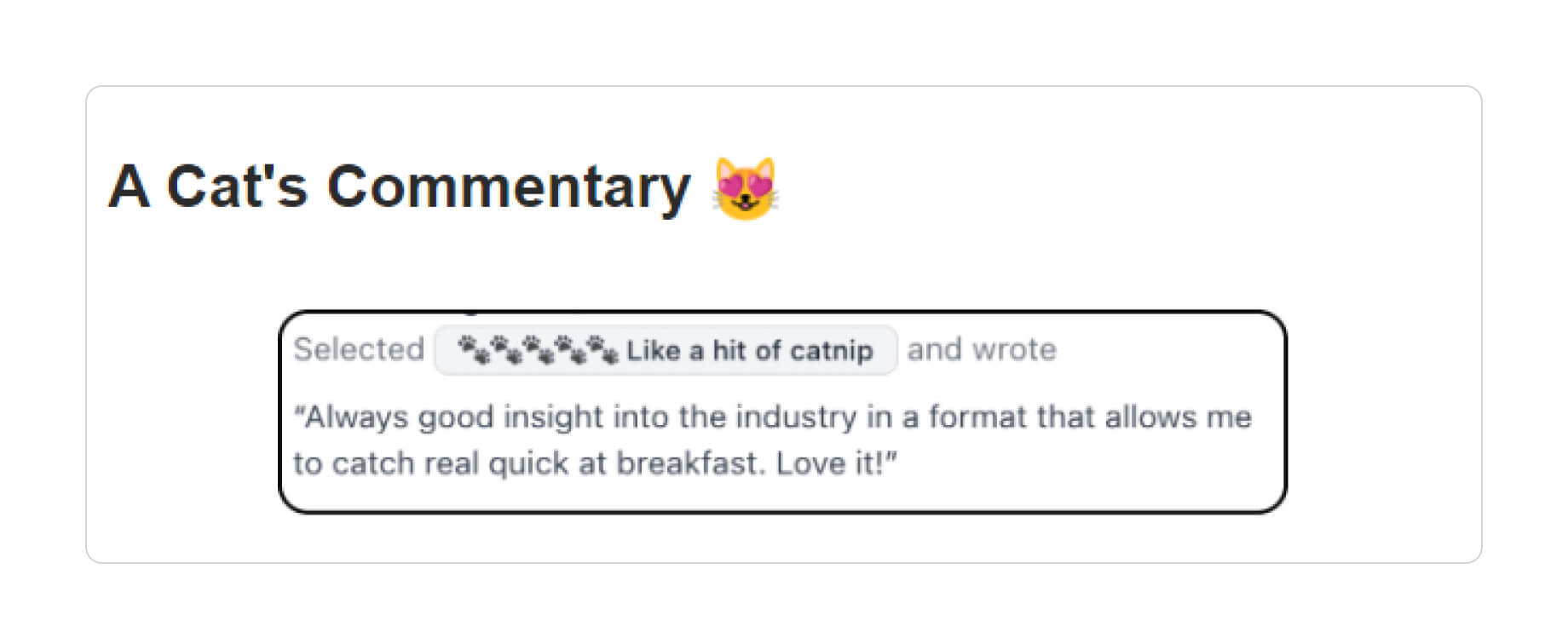
If you have pictures of customers using your product, it's a great idea to include them in your email.
Using images effectively can have a big impact on potential customers. For example, when a customer posts a picture of themselves using your product on social media, it shows that the product is of high quality. You can also include these types of images in your email marketing to help your target audience relate better to your customers.
4. Storytelling
Another effective way to use testimonials in email marketing is through stories. Sharing the story of a customer is an emotionally impactful marketing strategy.

In addition to enticing customers to try your product or service, highlighting the stories of real-life customers is a great way to show customer appreciation. This shows your subscribers that you care enough about your customers to learn their stories and share them.
Incorporating customer stories is a win-win for driving sales and enhancing your brand's image.
5. Comparisons to Your Competition
When selecting testimonials for your emails, consider looking for those that compare your product with your competitors'. Such testimonials can be powerful in convincing consumers who are undecided between your product and a rival's.
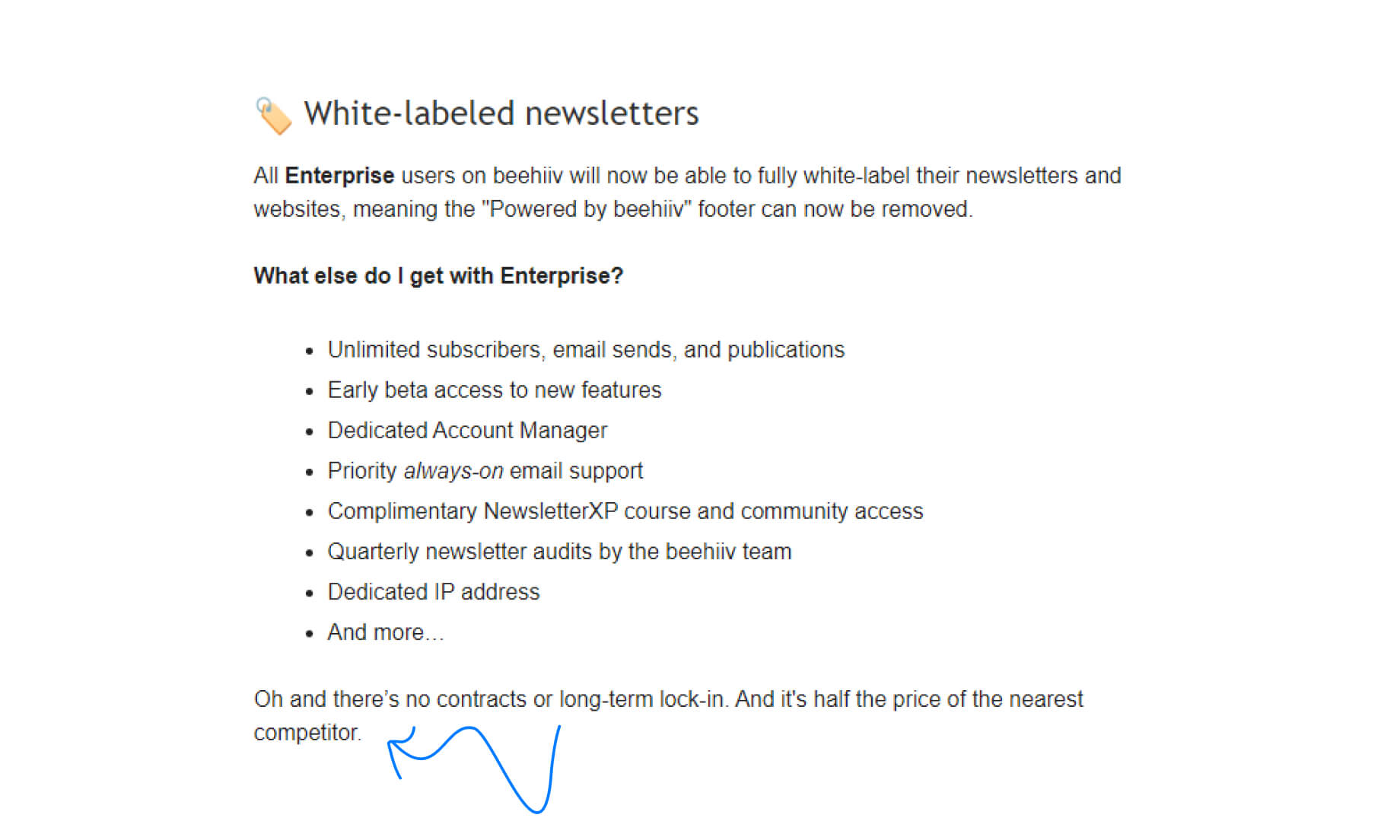
Related: How to Ask for a Review?
Examples of How Brands Successfully Used Testimonials in Email Marketing
Many businesses have successfully used customer testimonials to drive sales. Including a customer story in emails, highlighting the product's durability and quality, or other direct-to-consumer sales attributes are highly impactful in driving conversions.
Since the primary purpose of email marketing is to lead readers to a conversion, reviewing some practical examples can help any business manager learn to incorporate this concept into their email marketing strategy.
Here are three success stories to consider.
Example #1: Airbnb's Real-Life Stories
Airbnb's email campaigns use stories to make their services more relatable and personal. Every week, they send out an email that includes a real customer’s story of how they used Airbnb. This helps potential customers envision themselves using the service in their own lives and is highly effective at driving conversions.

What Made it Successful?
Airbnb uses brief and intriguing testimonials to establish trust and increase conversions with their audience. Since consumers of today tend to skim through emails, it provides them with the direct testimonial feedback they seek - in an easy to digest manner.
Example #2: Dropbox Customer Benefits
Dropbox effectively utilizes customer testimonials in their email marketing, particularly in their onboarding emails. As this platform is 100% digital in nature, being able to highlight the use-case applications of a diverse audience of users provides exceptional practical examples.
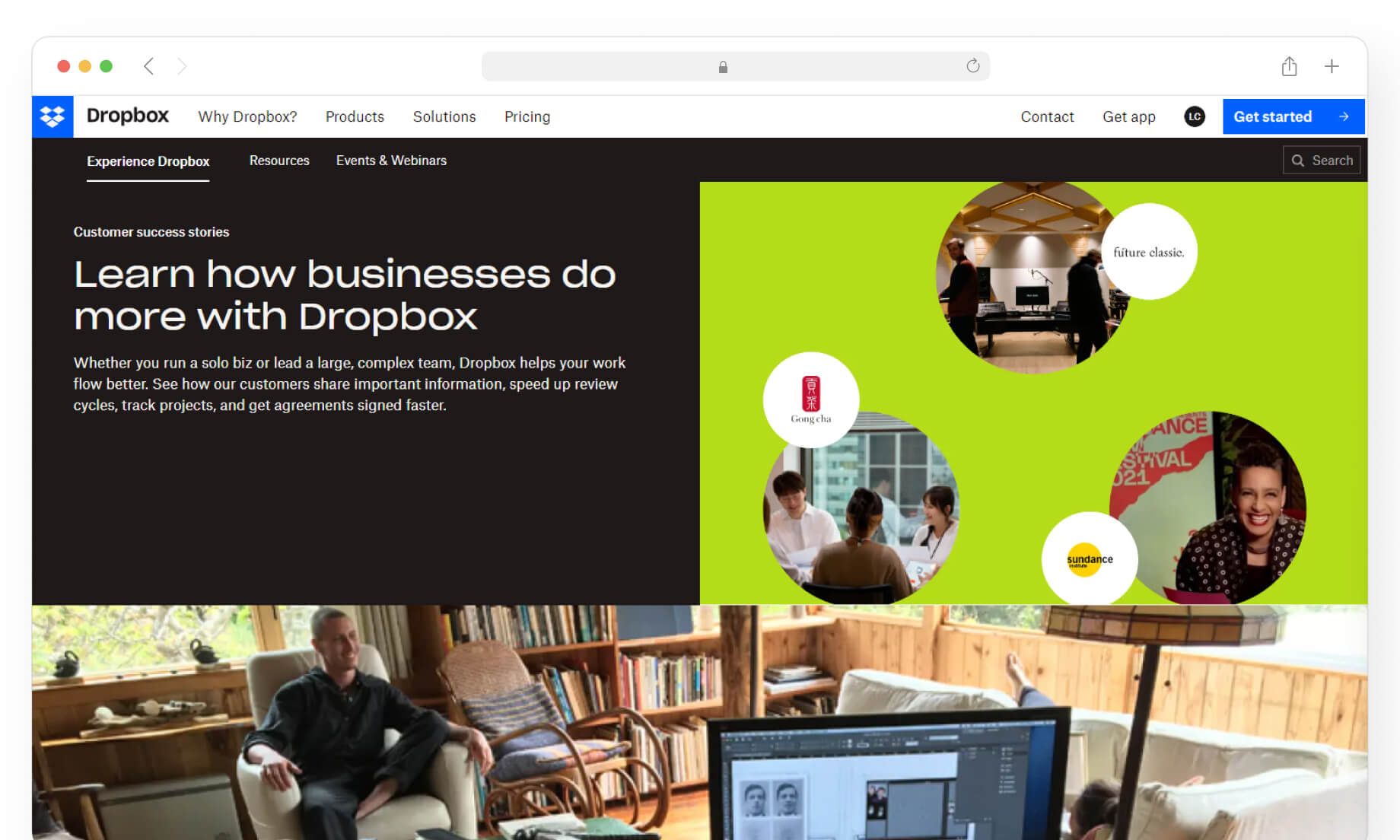
By showcasing real-life examples of how their customers have benefited from using their service, they build trust with their audience.
What Made it Successful?
Dropbox benefits from these testimonials as they increase trust and showcase the product's value, which in turn encourages new users to stay and eventually become paying customers. Plus, by strategically using industry-focused testimonials, and sending them to like-minded potential users, they're able to activate a powerful direct-target marketing program.
Example #3: HubSpot Success Stories
HubSpot is a company specializing in marketing and sales tools. Since their launch, they have effectively used customer testimonials to demonstrate the advantages of their platform. Their product update emails feature real-life results achieved by their customers using HubSpot.
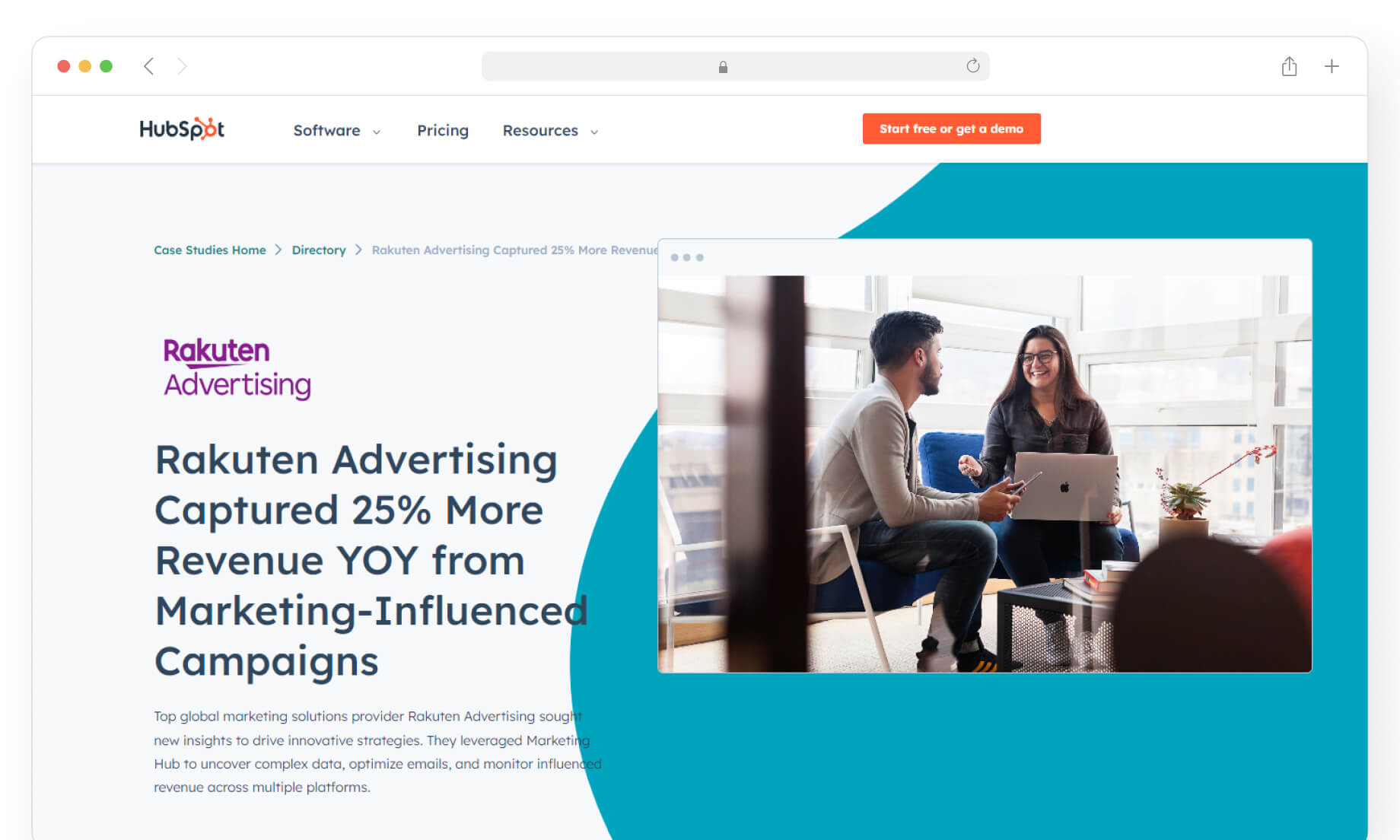
Again, in this situation, the company has been proactive by collecting user testimonials and organizing them by the industry the user actively works in. It's another example of targeted marketing.
What Made it Successful?
The testimonials support the development of trust, showcase the benefits of HubSpot, and motivate users to utilize all the features of the platform. Further, they're able to customize their testimonials and send emails to users that work in similar industries as feedback.

Showcase your online reputation
Use ReviewsOnMyWebsite's review widget to display your top reviews on your site.
Key Takeaways
As it's clear, customer testimonials can be a powerful tool for email marketing campaigns.
Real-life results and experiences showcased through them can build trust, demonstrate value, and increase conversions.
However, collecting those user testimonials is where most companies struggle.
This is where proactive business managers use the power of automation to improve their testimonial collection processes.
